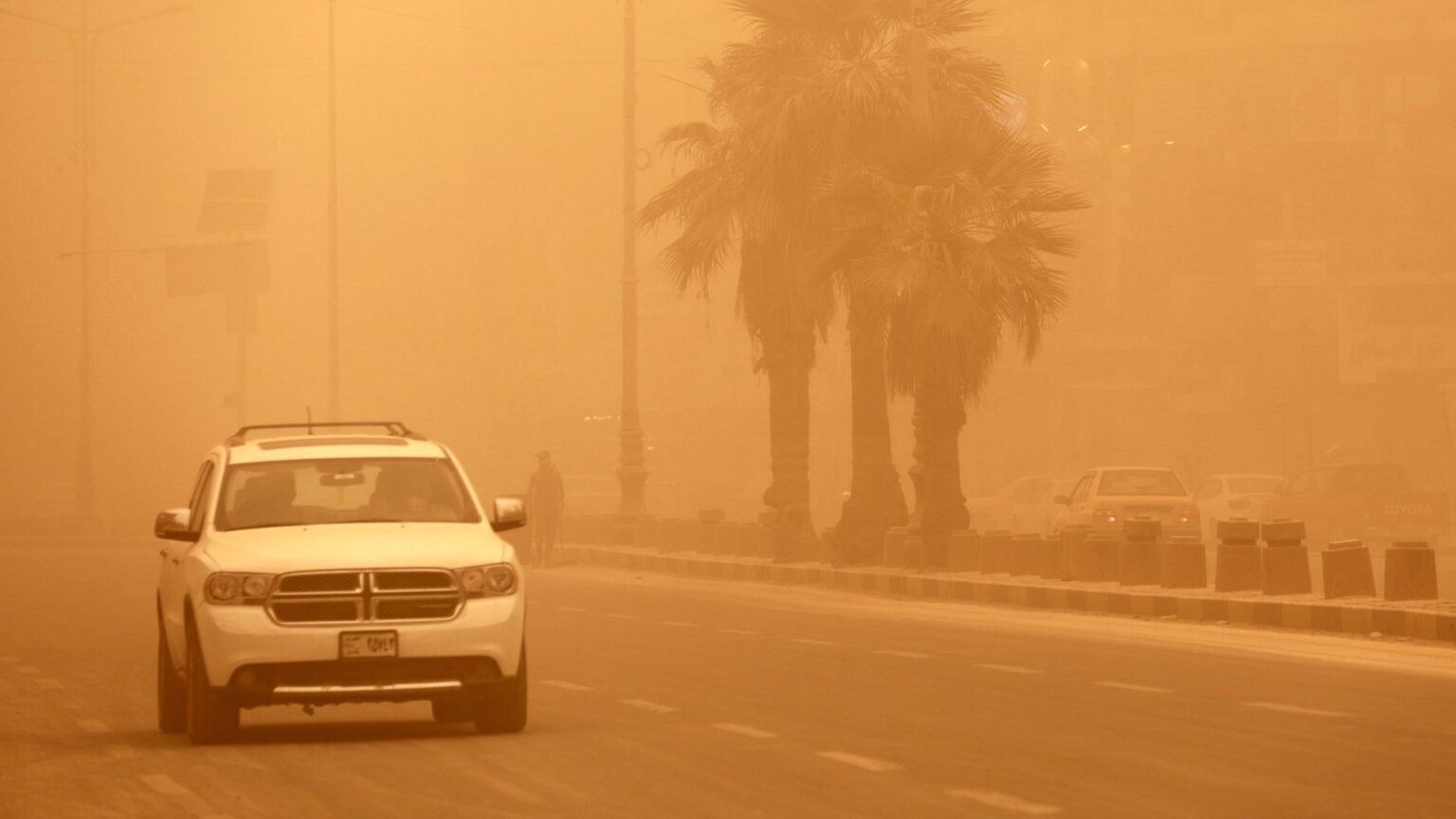A strong dust storm hit central Iraq, severely hampering visibility in Babil province and causing havoc in daily activities. Local governments issued alerts that asked people to remain indoors and restrict movement as dense clouds of dust covered highways, buildings, and agricultural land. Drivers struggled to drive in the fog, and flights from nearby regions suffered delays due to low visibility.
Sandstorms are a regular occurrence in Iraq, especially in its central and southern parts, fueled by desertification, climate change, and deforestation. Babil, which is renowned for its agricultural fertility, is particularly exposed since wind-borne dust has the potential to affect crop health as well as air quality.
The ministry of health has urged those with respiratory ailments, children, and the elderly to be cautious. There has been an influx of patients at hospitals throughout the province presenting breathing problems, eye irritation, and allergic symptoms. Pharmacies were in demand for inhalers and face masks.
Experts have demanded long-term environmental measures such as afforestation and sustainable land management techniques to limit the occurrence and intensity of such storms. In the absence of any intervention, Iraq can risk aggravating climate conditions that continue to jeopardize public health and infrastructure.









